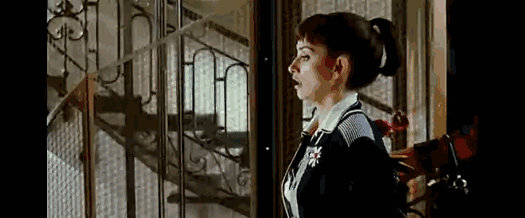Beauty and Disadvantage in Pedro Almodovar's Broken Embraces
Beautiful women. They are, we are led to believe, the catalyst for all art being created. It's not as much about believing, sometimes, as it is about a look over a shoulder or the inhale of a cigarette that can render an audience speechless. Beautiful women are magical creatures; surely just existing is all they need do, so goes the fantasy. This fantasy lies at the awful truth of Pedro Almodovar's Broken Embraces (2009), a film starring one of cinema's most beautiful women: Penelope Cruz. Within this film, Cruz is both an actor and ultimately a pawn in a game of obsession and envy.
We meet Cruz's character Lena while she is being informed that her sick father can no longer be kept in the hospital due to unpaid bills that Lena herself can't afford to help with. Her boss Ernesto Martel (Jose Luis Gomez) can help, however, and he takes full advantage of Lena's helpless situation by paying for the medical bills and later making Lena his wife. While the latter details of this marriage of convenience are not shown, Martel's obsession with Lena is the driving force of the film. He wants Lena's heart and soul, and is more than happy to buy them. His greed highlights Almodovar's concern with beautiful but disadvantaged women. Martel, so intent on possessing Lena, doesn't even notice when her real beauty, an inner light (if you will) on top of her physical appearance, begins to wilt. It is this essence that is so often overlooked in beautiful women. Many would hate to admit such a thing was real. It is but the hope of a returned admired glance from them, and ultimately what Martel craves but can't grasp. Why does her face not light up when she sees him? Why is she rigid to his touch? Questions that lead Martel to his only hope of controlling Lena: her destruction.
Lluis Homar, the male protagonist of the film, plays director Mateo Blanco. When we first meet him, he is blind, and it is through a recount of his early film career that we learn of his love affair with Lena. In a desperate bid to keep Lena happy, Martel had agreed to finance Mateo's latest film, provided he give Lena a starring role. Which was no trouble, Mateo was transfixed with her the moment she had turned her head to greet him.
Their affair starts and is soon out of their control. Mateo neglects his current partner, and both her and Martel grow suspicious. Martel then employs his son to film "behind the scenes footage" and soon obtains all the evidence he needs. Though by that time, safe in another mans arms, Lena is ready to leave Martel.
It is hard to understand things from Martel's point of view. He is a scorned lover, and apart from helping out Lena's father, he doesn't do a thing to redeem his character. Constantly pouting, even faking playing dead to get Lena's attention, Martel is the male ego at its most pathetic, and therefore most dangerous. When Lena is finally able to extend her goodbyes to Martel, he coldly pushes her down the stairs, breaking her leg. There are numerous gifs worth of moments one could focus on in this film, but it is Mateo's directorial decision for the film he is making starring Lena that gives us the best example of how disadvantaged Lena is despite her maddening beauty. Mateo decides to work her "accident" into the script, writing in a scene where a cruel tenant pushes Lena's character down some apartment buildings steps.
It was the case for myself, and probably a large number of cinemagoers, that heartbreak was felt in the few seconds showing Lena pushed down the stairs a second time. How can someone who has only committed the crime of wanting to feel secure be treated in such a way? Even Mateo's love is questionable, if not as equably obsessive as Martel's. Yet "The film must be finished" goes the director's catch-cry, an admirable one at that, if you are the director. Lena must of course finish the film. However, Martel is still hunting her. She must stay where at least one person has offered safety. To face Martel is to subject herself to more pain, as she paid the ultimate price when she told him what she wanted. If that doesn't correlate with what he wants, or anyone else obsessed with her for that matter, than what good is she? Beautiful yes, but some would rather see beautiful things smashed to pieces than be owned by someone else.
Mateo wants to keep Lena safe, this is true, but does he also not want his film to be a success? That is also true, and if Lena has to compromise for this than sadly that is what she must do over and over again. This is the helplessness we see on Lena's face as she falls the second time, and the guilt Mateo recounts years later. She believed she was fleeing safely into her lover's arms, but deep down she knows that she will always be the one playing out other people's fantasies. While she can be adored and have moments of passion that others would not experience, to be born beautiful also means to become stuck in the gaze of others if you should risk truly acting out your hearts desires. As a woman, I understood in this moment how transient the feeling is and that women of all walks of life know the frustration of compromise, a frustration that will continue as long as society envies the fantasy of beauty. As Lena's face distorts in surprise, you can not help but internalize some dialogue for her, "Why me, again?"

